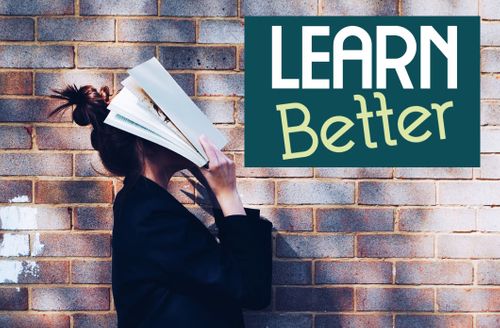The secrets to smart studying: How to learn more in less time
Jul 18, 2021 · 2 mins read
0
Share

Nobody ever shows us how to learn. Think back to all the time you spent studying in school and college. How much of it do you actually remember now? If you’re anything like me, the answer will be very little. And that seems like a terrible waste...
Save
Share
The problem is that teachers don’t tell you how to remember things. They don’t share simple mnemonics like creating a picture, a pattern, a story, or a rhyme out of something you need to memorize. Instead, we struggle with ineffective methods like rereading notes and flashcards.
Save
Share
The secret to learning is rehearsing. Whatever thing you want to learn (whether it’s a new language or the game of chess), you need to break that down into specific sub-skills and then rehearse each one.
Save
Share
The key is to stump yourself. Taking notes or highlighting text is not rehearsing a skill. Nobody’s going to test you on how well you can highlight things. You won’t do too well in any exam unless you’ve rehearsed the process of answering questions you’ve never been asked.
Save
Share
If you want to be good at chess, it’s not enough to read books about it. You need to practice things that will actually happen in the game, i.e. facing an unexpected move by your opponent, scanning your brain for the relevant information, then translating that into a response.
Save
Share
Rehearse under varying conditions. If you’re a basketball coach, for example, teach your players to adjust to unexpected situations by simulating injuries, playing with sweat in their eyes, or practicing with fewer players. You can never rely on optimal circumstances.
Save
Share
If you’re not rehearsing, you are not learning. Re-reading notes ahead of a job interview, for example, is a waste of time. (Your notes won’t tell you that you’re talking too fast.) Get a stranger to ask you questions. Listen to their feedback. Adjust. Rehearse more.
Save
Share
Here’s a hack: If you’re learning from a textbook, skip straight to the questions at the end of the chapter first. You won’t know the answers, of course, but that’s the point. By recognizing that you have incomplete information, your brain is primed to pick up on what’s relevant.
Save
Share
When you’re taking notes in a class, trying to keep up with the teacher means you’re probably jotting down their words verbatim. The trick is to translate notes into your own words – because that’s exactly what you’re going to have to do on a test.
Save
Share
Bottom line: Nobody can teach you better than how you teach yourself. Break down the components of what you need to do and then rehearse them so that you’re prepared for the unexpected. This approach is so efficient that if you learn one thing well, you can learn anything well.
Save
Share
0